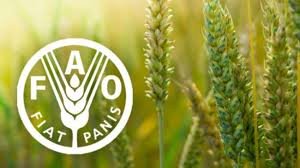The Food and Agriculture Organization of the United Nations (FAO) has issued a stark warning about the escalating spread of H5N1 highly pathogenic avian influenza (HPAI), emphasizing its potential to disrupt global food security and economic stability.
The Deputy Director-General of FAO, Godfrey Magwenzi, on Monday, described the situation on The Organization’s X account as “unprecedented.” He highlighted the significant losses in poultry, rising food prices, and increased threats to wildlife and mammals. The outbreak has led to significant market disruptions, affecting both consumers and producers worldwide.
The crisis has significantly increased the prices of eggs and poultry in various areas, worsening inflation and adding strain to struggling economies. Since 2021, the virus has impacted at least 300 new species of wild birds, making containment efforts more challenging and endangering biodiversity.
Magwenzi, emphasized the importance of a unified global effort, cautioning that vulnerabilities in disease management could lead to severe outcomes. She remarked, “A chain is only as strong as its weakest link. By collaborating, we can mitigate the effects of avian influenza and safeguard the health of both animals and humans.”
To alleviate the impact of the outbreak, the FAO has suggested a number of important measures, such as: enhancing disease surveillance and prompt reporting, boosting the capabilities of diagnostic laboratories, developing emergency response plans, improving biosecurity measures on farms, evaluating vaccination strategies, and promoting international cooperation.
They also emphasized the need for enhanced collaboration between the public and private sectors, highlighting the essential role of the private sector in maintaining secure supply chains and creating new vaccines.
The Organization highlighted its partnership with the World Bank’s Pandemic Fund to secure additional funding for disease surveillance and early warning systems. This fund supports initiatives aimed at strengthening global health infrastructure to avert future outbreaks.
During a high-level meeting with participants from Indonesia, Senegal, the International Poultry Council, the World Egg Organization, and Health for Animals, there was a collective demand for global cooperation to tackle the crisis.
As the virus keeps evolving, the FAO has reiterated its dedication to assisting countries by providing technical support, resources, and coordinated action plans aimed at safeguarding food security and public health.



